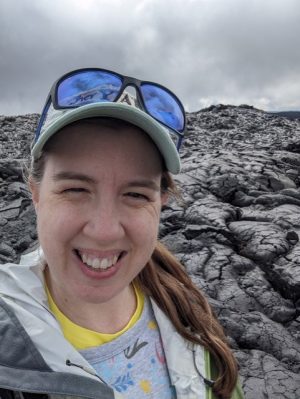Notice:
This event occurs in the past.
ACE EDI Event Series: Improving retention and success of students with disabilities through inclusive field education and community building
Thursday, March 14, 2024 from 11:30 am to 12:30 pm
- In-person event
- Pigiarvik, Carleton University
- 1125 Colonel By Drive, Ottawa, ON, K1S 5B6
- Cost: Free
NOTE: This event will be hosted Hybrid over Zoom. Registrants will receive the Zoom information for virtual connection prior to the event. Register below!
Field education is an important part of undergraduate training in the geosciences.
Studies show that field education has many benefits to students academically, professionally and personally. Many departments include completion of a field course as a requirement for degree completion, and field experience is often used as a selection criterion for geoscience graduate programs and jobs. However, accessible field programs are incredibly rare, which means the benefits of field experience are rarely available to students who struggle with the physical requirements, environment, format, or time commitments required in a traditional field course.
The GeoSPACE program (supported by NSF award #2023124 and donations) is a planetary geology field course and mentoring program takes an intersectional and disability-centered approach to break down barriers to participation in field courses for students from traditionally marginalized identities in geology. The unique accessible, hybrid format enables students to engage with field learning in a way that works for their needs. Field activities are planned with access and flexibility in mind. The virtual program enables students to engage in a synchronous field course through live streams, social platforms and remote sensing activities that compare field sites on Earth to locations on other planets. Together, in-field students (astronauts) and virtual students (Mission Control) combine their unique vantage points to tackle complex geology questions that neither group can answer alone.
Now in it’s third year, GeoSPACE provides opportunities for qualitative examinations of the use of communication technology in field education, the experiences of students with disabilities and other under-supported identities in the geosciences, the importance of community building, and the impact of the program on student retention, career progression and sense of belonging. This talk will focus on ways to make field learning (or any educational setting) more accessible, and the vital role experiential learning can play in creating more inclusive and equitable science disciplines.
About the speaker

Dr. Anita Marshall is a Lecturer and geoscience education researcher at the University of Florida with interests in disability inclusion, experiential learning, cultural aspects of the geosciences and belonging and community in STEM disciplines. She is the Executive Director of the International Association for Geoscience Diversity (theIAGD.org), a non-profit with the mission to improve inclusion for people with disabilities in the geosciences. Her work is informed by her experiences as a disabled geoscientist, a member of the Choctaw Nation of Oklahoma, and her non-traditional academic path. She was the recipient of the National Association of Geoscience Teachers (NAGT) Excellence in JEDI award in 2022.